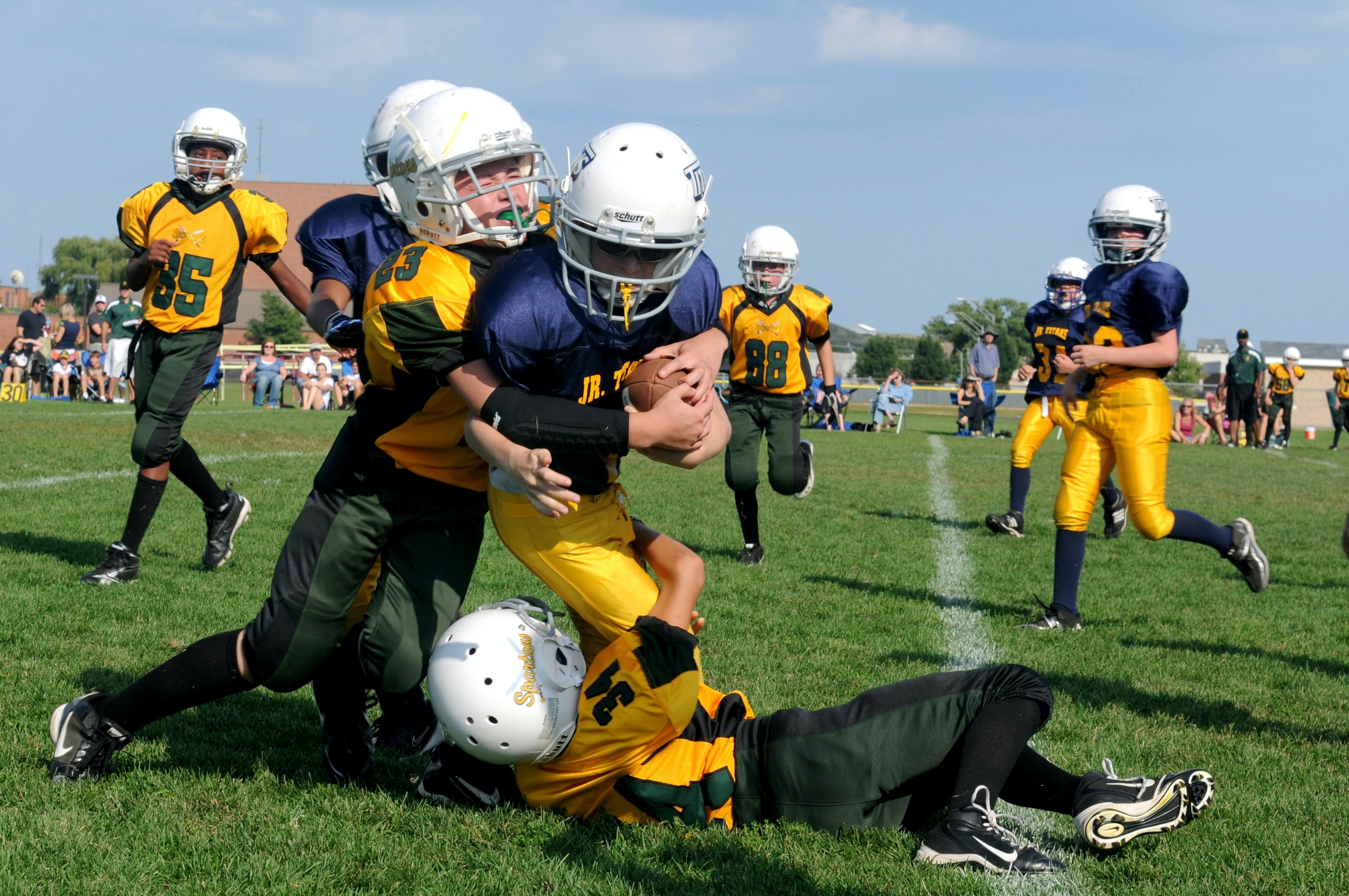Football is an exciting sport. What’s appealing is its immediacy.
Baseball action develops slowly, and golf can put you to sleep. Basketball goes faster, but the players can’t legally crash into each other like they can on a football field.
Many children do fall in love with the game. They go out in the backyard and pretend to be Tom Brady or Cam Newton. But should their parents actually let them play it?
Kids in Pop Warner football can start at the age of four or five. But the game has some inherent dangers that it’s hard for responsible parents to ignore.
Let’s examine this issue a little more closely.
What Medical Science Now Knows About CTE
These days, medical science knows that football can cause CTE or chronic traumatic encephalopathy. In fact, the risk of developing CTE doubles every 2.6 years of play. CTE:
- Causes depression, personality changes, and mood swings
- Leads some current and former players to suicide
CTE is brain damage. It comes from repeated hits to the head, and it’s more likely that a person will contract it the more concussions they get.
Think about NFL Hall of Famer Junior Seau. He was a fantastic player, but those close to him say his personality changed when he retired. He had constant headaches, and he faced deep depression.
He took his own life, and when they did an autopsy, they found advanced CTE brain decomposition. He’s hardly the only one: medical science has found many former football players who are going through this as well.
There’s Inherent Violence in Football
It’s true that we know more about CTE now, and we’re doing what we can to prevent it. That includes:
- NFL, college, and high school rule changes
- Better helmets and other equipment
The helmets that both amateur and pro players wear now protect their brains better than ever before. There are also rules in place in college and the pros that make the most violent collisions less likely.
Still, these are big, powerful individuals, and they’re smashing into each other with car-wreck force. You can take some of the most destructive elements out of football, but it’s still tough to completely legislate the violence out of it. If you do, you have something that little resembles what Americans love.
Should Parents Let Their Kids Play?
People have opinions about whether or not to let their kids play. You can get concussions in other sports, and CTE is possible as well. Football is unique, though, in that you probably have the highest chance of getting CTE when you play it, except perhaps for rugby, which is basically football, but without helmets.
There are certainly compelling reasons for parents to let their kids play sports. Kids who play sports are less likely to involve themselves with drugs and gangs. They often do better academically, and they don’t drop out of school.
You can let your kid play something other than football, though. There’s always baseball, basketball, or hockey. There’s tennis, swimming, distance running, and other sports where there’s barely any physical contact.
It’s hard to convince your child not to play football sometimes. NFL players are like superheroes. They’re flashier and more outspoken than most other sports stars.
The fact that Patrick Mahomes just signed a deal worth a record half a billion dollars doesn’t help, either. What kid wouldn’t want to get into football if they know there’s that sort of money out there waiting for them?
It’s Your Decision
As much as a kid wants to play football, it’s you, the parent, who must ultimately choose for them. You’re the adult, and you’re in charge.
If a child plays in Pop Warner for a couple of years, they probably won’t get CTE. But when they get into middle and high school football, it’s hard to ignore the numbers.
You’ll have to speak frankly with your child about the risks. If they want to play football more than life itself, you might think that the potential rewards outweigh the risks. If you feel the opposite, then hopefully, your child will get over it in time.
Football is entertaining, but it’s risky. That’s why most football careers are relatively short, even for those who make it to the NFL.
As a parent, it’s a tough situation. If your child has NFL dreams, a part of you might hope they make it, while an equally large part might want them to fail.
